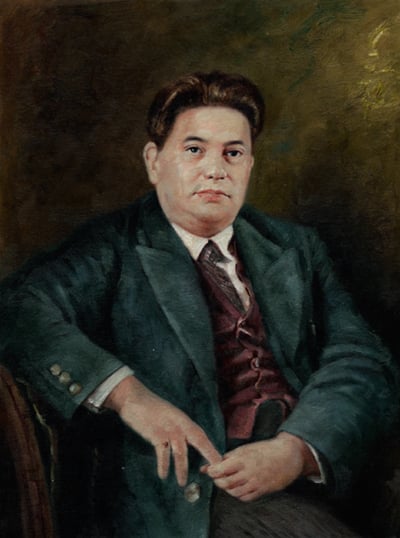In the tapestry of 20th-century music, few threads shine as brightly or colorfully as that of Darius Milhaud. Born under the warm Provençal sun of Marseille in 1892, young Darius was destined to paint the world with sound, his life a vibrant composition of passion, innovation, and resilience.
Picture a curly-haired boy, eyes twinkling with curiosity, fingers already dancing across piano keys. The Milhaud household buzzed with the melodies of his father’s amateur musicianship and the rhythms of his mother’s operatic dreams. It was here, in this nurturing cocoon, that Darius’s love affair with music first blossomed.
As a teenager, Milhaud traded the lavender-scented hills of Aix-en-Provence for the bustling streets of Paris. The City of Light became his canvas, the Paris Conservatoire his atelier. Here, under the tutelage of masters like Charles-Marie Widor and Vincent d’Indy, Milhaud honed his craft, his unique voice beginning to emerge amidst the cacophony of artistic revolution.
But it was Brazil that set Milhaud’s soul ablaze. In 1917, as Europe reeled from the Great War, he found himself in Rio de Janeiro, serving as secretary to the poet Paul Claudel. The pulsating rhythms of samba and the vibrant hues of Brazilian culture seeped into his very being. This intoxicating blend of European tradition and New World vitality would become the hallmark of Milhaud’s style, a musical alchemy that would captivate audiences for decades to come.
Returning to Paris, Milhaud joined the avant-garde collective known as “Les Six.” Alongside friends like Francis Poulenc and Arthur Honegger, he championed a new aesthetic – one that thumbed its nose at the excesses of Romanticism and embraced the everyday, the humorous, the jazz-infused. His ballet “Le bœuf sur le toit” (The Ox on the Roof) became the talk of Paris, its Brazilian-inspired melodies and polytonality shocking and delighting in equal measure.
Darius Milhaud‘s pen seemed inexhaustible. Operas, symphonies, chamber works, and ballets poured forth, each piece a new experiment in sound. He played with polytonality like a child with building blocks, stacking harmonies in dizzying combinations. His music could be playful one moment, deeply moving the next – a reflection of the man himself, whose wit and warmth endeared him to all who knew him.
But the storm clouds of World War II loomed. Milhaud, Jewish and outspoken, found himself in the crosshairs of Nazi persecution. With a heavy heart, he bid farewell to his beloved France, seeking refuge across the Atlantic. America welcomed him with open arms, and he found a new home at Mills College in California. Here, surrounded by redwoods and eager young minds, Milhaud continued to compose and teach, his creativity undimmed by exile.
Among his students was a young man named Dave Brubeck, who would go on to revolutionize jazz. Milhaud’s influence rippled outward, touching countless musicians across genres and generations. He became a bridge between worlds – classical and jazz, Old World and New, tradition and innovation.
After the war, Milhaud divided his time between America and France, a musical ambassador straddling two continents. Despite battling rheumatoid arthritis that confined him to a wheelchair, his spirit remained indomitable. He continued to compose prolifically, his works numbering over 400 by the end of his life.
Milhaud’s legacy is not just in the notes he penned, but in the boundaries he pushed, the students he inspired, and the joy he brought to music. He showed us that serious art need not be somber, that complexity could dance hand in hand with accessibility. His life was a testament to the power of embracing diversity – of influences, of cultures, of harmonies.
When Darius Milhaud passed away in Geneva in 1974, he left behind a world forever changed by his music. His compositions continue to be performed and studied, a living testament to a man who lived life as he composed – with passion, curiosity, and an unwavering belief in the transformative power of music.
In Milhaud’s own words, “I have no aesthetic. I write what I feel.” And in feeling deeply, in loving widely, in creating fearlessly, Darius Milhaud composed not just music, but a life that continues to inspire and resonate, a symphony that plays on long after the final bar.


